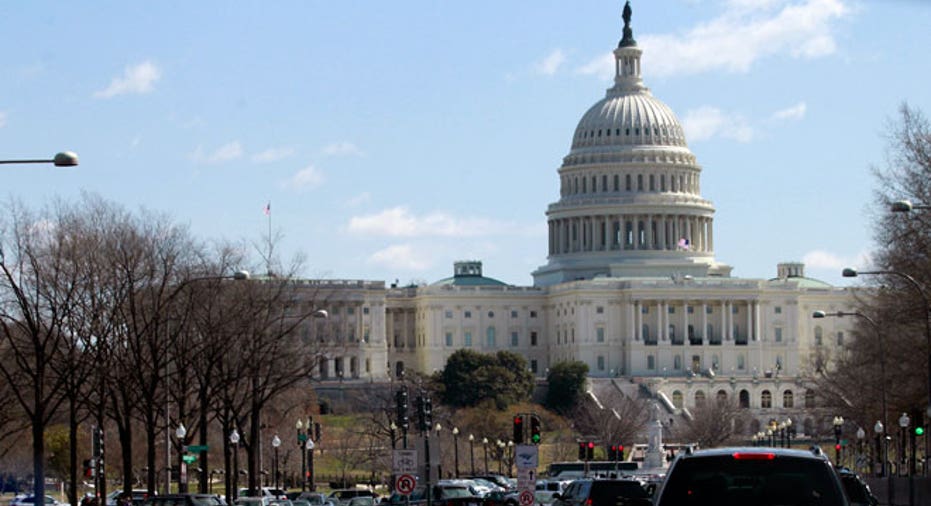Planned Parenthood Could Cause Government to go Dark in September

There’s a dark government-shutdown cloud looming over Capitol Hill once again, and this time it’s not a matter of increasing defense spending, raising the debt ceiling, or repealing the Affordable Care Act.
If the government shuts down at the end of September it’s because of Planned Parenthood.
If you’re scratching your head trying to make the connection, you’re likely not alone. But there’s a reason why the sometimes-controversial non-profit is dividing Congress. Undercover online videos surfaced over the summer allegedly showing Planned Parenthood executives bargaining to sell aborted fetal tissue for profit.
Now, some on the Hill want to take away federal funding from the organization – and the controversy essentially runs along party lines: Republicans, for the most part, want to defund the organization, while Democrats and the White House have said they would not support an effort to do so.
Thus: Any agreement for a continuing resolution, stop-gap or temporary appropriations legislation to keep the government funded past September 30 – the end date for an existing CR – is tied to defunding Planned Parenthood.
“I think the one point everyone overlooks when they bash [House Majority Leader John] Boehner and [Senate Majority Leader Mitch] McConnell is that they don’t have the votes,” Greg Valliere, chief political strategist at Potomac Research Group said. “The only way to get a CR done is to cut a deal with Democrats. [They’ll] have to have defections with Republicans. They’ll have to finesse that issue – I find it hard to believe the government would shut down over that.”
In a note to clients, investment-banking heavyweight Goldman Sachs (NYSE:GS) weighed in on the issue saying a shutdown at the end of the month has become “much more likely” over the last several weeks, especially as it sees the House looking prepared to pass a CR defunding Planned Parenthood.
“The Senate already considered legislation dealing with that topic and failed to muster 60 votes, suggesting that only a ‘clean’ funding bill can pass there,” the note explained. “As has been the case several times before, this will put House leaders in the position of accepting a ‘clean’ bill that the Senate will eventually pass, thereby averting a shutdown, or insisting on their version, which the president would surely veto in any case.”
More than Politics, It’s About the Economy
Goldman puts the odds of a shutdown “approaching 50%,” though it doesn’t see a government closure affecting financial markets or the economy much at all.
“Unlike the 2013 shutdown, which coincided with the deadline to raise the debt limit, the next debt limit is unlikely to be reached until at least mid-November,” Goldman’s note read.
“Shutdowns that overlapped with debt-limit deadlines – the 1990 and 2013 shutdowns – have tended to result in a stronger reaction in financial markets than other shutdowns where the debt limit deadline was not about to be reached.”
Goldman added that the second reason a shutdown – if one were to occur – wouldn’t likely have a lasting impact is because it probably wouldn’t last long. The 2013 shutdown lasted 16 days, far longer than analysts had forecasted, but because Congress couldn’t agree on whether to also hike the debt ceiling.
“While one might argue that the lack of any deadline could lead to an even longer potential shutdown this year, it is more likely in our view that it would simply result in a decision to end the shutdown soon after it began, as has been the case with nearly every other government shutdown,” Goldman noted.
How Congress Impacts the Non-Partisan Federal Reserve
But there’s another angle that hasn’t been addressed in past shutdown scenarios: The Federal Reserve and its decision to raise interest rates.
If you’d asked Wall Street a month ago whether the U.S. central bank would begin to lift short-term rates in September from near-zero for the first time since the financial crisis, you would have heard a resounding “yes.” But factor in an all-out panic in the market about China’s economic stability coupled with a potentially looming emerging-market currency crisis, and the Fed is suddenly a lot less certain about its decision.
The central bank meets for a two-day policy meeting on Wednesday and Thursday. At the conclusion, it will announce whether rates will go up, or if members want to see more economic evidence of an accelerating U.S. economy before moving higher. Some of the biggest banks on Wall Street have forecast a rate hike in December, or as far out as next March.
It’s that issue that could complicate things come December.
“Nobody is talking about getting a budget done by October 1, largely because Congress is down to about 10 days left in September with the Jewish holidays and the pope in town. There’s no way in the world they’ll get a budget done,” Valliere said. “In December, the goal would be to get a budget done and raise the debt ceiling.”
Keep in mind the Federal Open Market Committee meets that month on the 15 and 16 when Congress could be squabbling not just about funding, but also the nation’s borrowing limit
“There’s a real threat of a government shutdown and a debt crisis in December,” Valliere said. “The Fed could say then that they can’t raise rates with that kind of threat. It increases uncertainty on Fed policy, and markets don’t like uncertainty. It complicates the entire scenario if Congress is still in the middle of this stuff in December.”



















